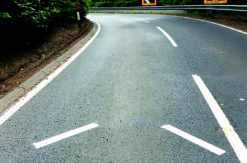
A ‘hidden epidemic of drug-riding is at large in Britain’, according to a report by leading road safety charity, IAM RoadSmart – and it’s not just illicit drugs that are the problem.
While the rules on riding after taking recreational drugs are well known and lead to hefty fines and bans from the road, what many riders don’t realise is that legal, prescribed and over-the-counter medicines can also lead to you losing your licence.
For example, one-in-six British suffer from hay fever, and many take antihistamines to combat it. But they are powerful drugs that can induce drowsiness and impair fine motor skills – the ones bike riders rely on most to keep safe control of their bike.
But the Roadsmart survey, which looked primarily at driving but is equally applicable to riders of powered bikes, found that a third of users don’t know the maximum dose they can take safely before riding a powered bike or driving, and a fifth admit to never or rarely checking if the medicines they take carry warnings about riding after taking them.
Antony Kildare, CEO at IAM RoadSmart, commented: “When people think of riding while under the influence of drugs, they will probably, quite understandably, think of those who get behind the wheel after taking illicit substances such as cocaine, cannabis or ecstasy.
“And yet legal drugs that are used for medicinal purposes can often be just as potent, and could profoundly impact your judgement on the roads.
“We are urging riders to be vigilant of any potential symptoms of taking their medication and consider how the side-effects could impair them. This may include drowsiness, light-headedness, shakes and dizziness.”
For the full report see


